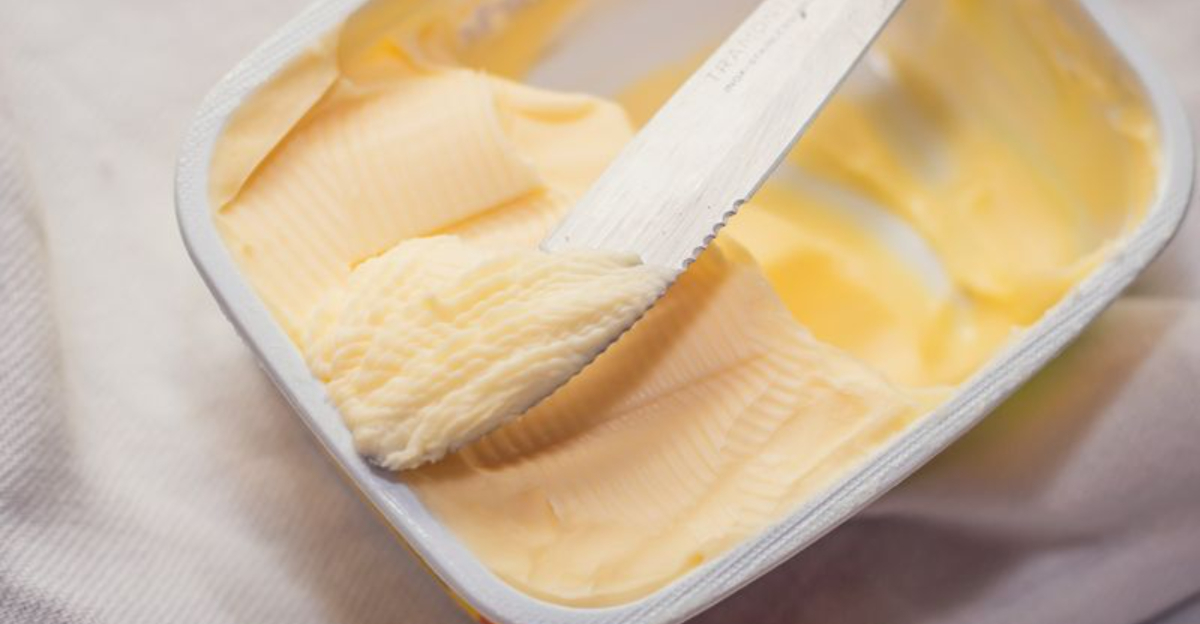20 Ultra-Processed Foods You Should Totally Avoid

The food industry has transformed our diets with ultra-processed items that are super-tasty but harmful to our health. These factory-made foods contain additives, preservatives, and artificial ingredients that our bodies struggle to process.
Cutting them from your diet can lead to better health, more energy, and reduced risk of chronic diseases. After reading this text, there is no doubt that you will do exactly the right thing.
1. Sugary Breakfast Cereals
Colorful boxes promise fun mornings, but many breakfast cereals are sugar bombs in disguise. Some brands pack more sweeteners than actual grains!
Manufacturers often strip away nutrients during processing, then spray vitamins back on as a marketing trick.
Your body processes these artificial nutrients differently than natural ones.
2. Diet Soda
Zero calories doesn’t mean zero problems! Artificial sweeteners trick your brain into craving more sugar while disrupting gut bacteria balance.
Regular consumption is linked to increased risk of metabolic syndrome, type 2 diabetes, and cardiovascular issues.
The caramel coloring in many dark sodas contains potentially carcinogenic compounds called 4-MEIs.
3. Frozen Pizza
Friday night’s easy dinner solution hides a nutritional nightmare. Most frozen pizzas contain modified starches, processed meats, and cheese products rather than real cheese.
The crust often contains dough conditioners like azodicarbonamide—also used in yoga mats and shoe rubber!
One serving typically delivers nearly half your daily sodium allowance, contributing to high blood pressure.
4. Processed Meat Sticks
Gas station protein might seem convenient, but those meat sticks are preservation marvels—and not in a good way. Loaded with sodium nitrite to prevent spoilage and maintain color, these processed meat products increase cancer risk.
The World Health Organization classifies processed meats as Group 1 carcinogens—the same category as tobacco! Most contain corn syrup and hydrolyzed vegetable protein too.
5. Instant Noodles
College survival food comes with long-term health costs. Those little flavor packets contain more than a day’s worth of sodium, MSG, and artificial colorings.
The noodles themselves are deep-fried before packaging, soaking up unhealthy oils. Research shows regular consumption is associated with metabolic syndrome, especially in women.
6. Margarine
Butter’s imposter was once marketed as heart-healthy, but contains dangerous trans fats and processed oils. The manufacturing process involves hydrogenation, forcing hydrogen into vegetable oils to make them solid at room temperature.
This unnatural molecular structure confuses your body’s cells. Yellow dyes create the butter-like appearance, while emulsifiers and preservatives extend shelf life. Stick with real butter in moderation instead!
7. Boxed Macaroni and Cheese
Childhood comfort food gets a failing nutrition grade. The neon orange “cheese” powder contains no actual cheese—just colorings, whey powder, and salt.
Studies found concerning levels of phthalates (plastic chemicals) that leach into the powder during processing. These endocrine disruptors interfere with hormone function.
The pasta itself is typically made from refined wheat stripped of fiber and nutrients.
8. Fruit Snacks
Marketing wizards call them “made with real fruit,” but fruit snacks contain minimal actual produce. Most brands list corn syrup or sugar as the first ingredient, followed by artificial colors linked to hyperactivity in children.
The chewy texture comes from gelatin or pectin, while the fruit flavor is entirely manufactured. These sticky treats cling to teeth, promoting cavities. Choose whole fruits instead for fiber and nutrients.
9. Fast Food Chicken Nuggets
Mystery meat gets a crispy coating and kid-friendly shape. Typical nuggets contain chicken parts mixed with soy protein, modified starches, and binding agents to create a paste.
This mixture is shaped, breaded with refined flour, then fried in unhealthy oils that are reused multiple times.
Some brands include dimethylpolysiloxane, an anti-foaming agent also used in silly putty, to prevent oil splatter during cooking.
10. Frozen TV Dinners
Convenient doesn’t mean nutritious. Most frozen meals are sodium bombs, containing up to 1,800mg per serving—more than most people should consume in an entire day!
Manufacturers use cheap fillers like modified corn starch and textured vegetable protein instead of whole ingredients. The vegetables are typically picked unripe and flash-frozen, containing fewer nutrients than fresh produce.
Many contain BHA and BHT preservatives linked to cancer.
11. Flavored Yogurts
Yogurt’s health halo quickly fades when fruit flavors enter the picture. A single cup of flavored yogurt can contain more sugar than a candy bar—up to 29 grams!
Artificial colors and flavors replace real fruit, while thickeners like modified corn starch create the creamy texture. The heat processing destroys many of the beneficial probiotics that yogurt is known for.
Plain yogurt with fresh fruit offers the true benefits.
12. Processed Cheese Slices
Those perfectly uniform yellow squares barely qualify as cheese under FDA regulations. Manufacturers can legally call them “cheese food” or “cheese product” because they contain less than 51% actual cheese.
The rest? Emulsifiers, preservatives, and oils create that melt-in-your-mouth texture. Sodium citrate and phosphates help create the unnaturally smooth consistency.
Some brands won’t even melt when heated—a sure sign something’s not right!
13. Bottled Salad Dressings
Garden greens deserve better than these chemical cocktails. Most commercial dressings use soybean oil—a highly refined, inflammatory omega-6 oil—as their base.
Sugar appears in surprising quantities, even in savory varieties like Italian or ranch. Preservatives, artificial flavors, and thickeners like xanthan gum round out the ingredient list.
Making your own with olive oil, vinegar, and herbs takes just minutes!
14. Energy Drinks
The buzz comes with serious health baggage. These canned stimulants contain massive caffeine doses alongside synthetic substances like taurine and L-carnitine in untested combinations.
The sugar content can reach 14 teaspoons per can! Artificial colors like Yellow 5 are linked to hyperactivity and allergic reactions.
Multiple deaths have been associated with energy drink consumption, particularly when combined with alcohol or during exercise.
15. Sweetened Breakfast Pastries
Morning sugar bombs crash your metabolism before the day begins. Those convenient toaster pastries contain up to 5 types of added sugar plus white flour—a recipe for blood sugar disaster.
Artificial colors and flavors replace real fruit, while palm oil and preservatives extend shelf life to months. Some varieties contain more sugar than a candy bar!
Your body deserves real fuel to start the day, not a processed sugar crash.
16. Artificial Pancake Syrup
Maple trees had nothing to do with that brown liquid drowning your pancakes. Artificial syrups contain zero maple—just high-fructose corn syrup, caramel coloring, and artificial flavors.
The caramel color contains 4-methylimidazole (4-MEI), a potential carcinogen formed during manufacturing.
Some brands add sodium benzoate and sorbic acid as preservatives, which can form benzene (a carcinogen) when combined with vitamin C.
17. Store-Bought Smoothies
Health in a bottle? Think again. Commercial smoothies often contain more sugar than soda—up to 50+ grams per bottle!
The fruit content is minimal, with most flavor coming from concentrates and “natural flavors.” Many contain thickeners like carrageenan and preservatives to extend shelf life.
The pasteurization process destroys vitamins and enzymes that make fresh fruit nutritious. Blend your own instead!
18. Flavored Rice or Pasta Mixes
Those convenient side dishes hide a sodium avalanche. A single serving can contain over 1,000mg of sodium—nearly an entire day’s recommended intake!
The flavor packets contain hydrolyzed proteins (another name for MSG) and artificial colors. Dehydrated vegetables provide minimal nutrition compared to fresh versions.
The “butter flavor” contains no actual butter—just chemicals designed to mimic its taste.
19. Protein Bars
Workout fuel or candy bar in disguise? Many protein bars contain more sugar than protein, despite healthy-sounding names and packaging.
Sugar alcohols like maltitol cause digestive distress in many people. Soy protein isolate, a common ingredient, is highly processed and may contain aluminum from manufacturing.
The chocolate coating contains palm oil rather than cocoa butter, while artificial sweeteners trick your brain’s reward system.
20. Reduced-Fat Peanut Butter
Marketing magic turns a healthy fat into a processed nightmare. When manufacturers remove natural peanut oils, they replace them with sugar, corn syrup solids, and added salt to improve flavor.
The result? A product with nearly identical calories but fewer healthy monounsaturated fats and more carbs. The smooth texture comes from fully hydrogenated oils and emulsifiers.
Regular peanut butter with just peanuts and salt is actually healthier!
